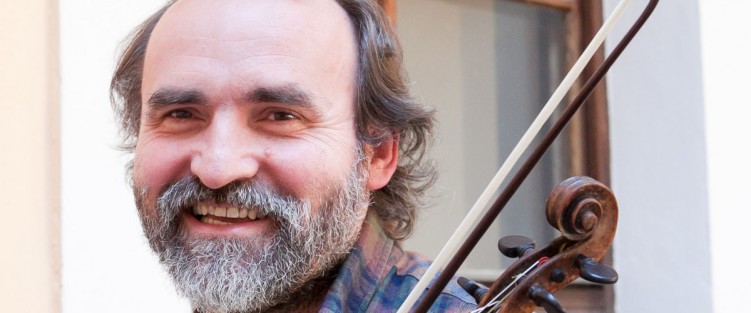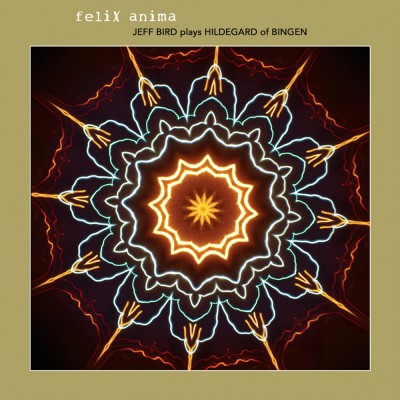 Tafelmusik Baroque Ensemble is making good use of its emerging hybrid artistic leadership model: a three-player artistic co-directorship (Brandon Chui, Dominic Teresi, and Cristina Zacharias), mentored by Principal Guest Director Rachel Podger. Together they are in the process of putting together a storied season. February and March alone will bring 11 performances of four different programs.
Tafelmusik Baroque Ensemble is making good use of its emerging hybrid artistic leadership model: a three-player artistic co-directorship (Brandon Chui, Dominic Teresi, and Cristina Zacharias), mentored by Principal Guest Director Rachel Podger. Together they are in the process of putting together a storied season. February and March alone will bring 11 performances of four different programs.
First up are the final two performances (Feb 1 and 2) of “Brilliant Baroque” under Podger’s lead, fresh off a sold-out tour to South Korea.
Guest director, Italian oboist Alfred Bernadeschi follows (Feb 21,22,23) with “Triple Espresso: Bach, Handel & Fasch” (with a bit of Telemann thrown in for luck) described entertainingly on their website as “a high-energy concert that unleashes the exponential power of the oboe.”
The remaining two programs are a study in contrasts.
March 7,8,9 offers up “Baroque & Folk: Purcell to Poland” under the leadership of Slovakian violinist Miloš Valent, famed for digging into the intersections between baroque and folk music traditions, and with a couple of equally curious guests in tow.
After that, we return to reassuringly familiar ground (March 28,29,30) with choir and ensemble reunited under Ivars Taurins’ direction, for “Choral Splendours: Bach & Zelenka”, promising a range of music, from “intimate gems” to “an extravagant Catholic mass by Zelenka.
It’s the third show, “Baroque and Folk” that really caught my fancy though. Valent talks about how music is “the unique and universal language of humankind, and music-making is enriched as it reaches beyond tribe and clan.” And then says this: “When musicians meet at the crossroads, unexpected new creativity is unleashed, rewarding not only the performers, but those who listen and partake.”
To that end, expect to find Tafelmusik journeying from Purcell to Poland, riding an exquisite musical edge between terror and delight (in the company of Valent, multi-instrumentalist Jan Rokyta, and Naghmeh Farahmand, percussion) as they collectively explore “how Telemann, Purcell, and Vivaldi “were influenced by folk music from the Ashkenazy, Polish, Roma, Scottish, and Turkish traditions, and as “Tafelmusik’s baroque strings, winds, and continuo intermingle with the sonorities of the hammered dulcimer, the Armenian duduk, folk recorders, and percussion.”
I’m sold.
Early Music Quick Picks
With Valent’s words about musical crossroads in mind, here are three upcoming concerts that particularly caught my eye.
Feb 9 3:00: Array Music. Jeff Bird Plays Music of Hildegard von Bingen. A concert of 12th century mystic Hildegard von Bingen arranged for harmonica, electric guitar and shruti box by Jeff Bird who got hooked on the music of Medieval Europe in the 70s, which was when he discovered Hildegaard, culminating in his 2016 celebrated recording, Felix Anima.
Feb 7 and 9: Vice & Virtue. A co-production of Bud Roach’s Capella Intima in Hamilton and St. Catharine’s-based Gallery Players of Niagara, Vice & Virtue comes to Toronto Feb 7, with the co-operation of North Wind Concerts and Music at Met and then plays St. Catharines Feb 9.
Mar 16: Gallery Players of Niagara again with Bach on Turtle’s Back - Year 3 - Rebirth, matching a Bach sonata, partita and arias with a newly commissioned work by Andrew Balfour, scored for period string quartet and baritone.
I found these three, among dozens more, by visiting “Just Ask” under Listings on the WholeNote website, and doing an advanced search for the tag Early Music.
David Perlman can be reached at publisher@thewholenote.com




